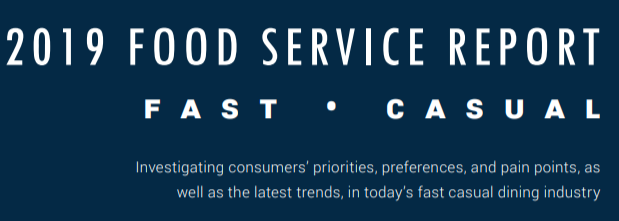It’s Thursday, which means another installment of Market Research 101, and we hope you are as excited as we are (which, for the record, is quite excited—we are total market research nerds!).
This week is going to be a little different, however, because this week’s topic, omnichannel market research, is not a particular market research methodology but rather a custom-built combination of several complimentary methodologies targeting a specific purpose.
So tear your self away from your Halloween costume prep (yes, we are actually thinking about how to dress up as Market Research) and let’s get back to learning as we run through the ins and outs, the dos and don’ts of omnichannel market research.
What is Omnichannel Market Research?
Omnichannel Market Research is a multi-methodology research program designed to track customers across multiple digital and brick-and-mortar touchpoints.

It is necessary because, with very few exceptions, no shopper is entirely online or in-store — the reality is far blurrier and messier than that. Most consumers are some varying combination of digital and brick-and-mortar shoppers and, as food service, retail, and grocery all attempt to build out their omnichannel operations, a custom built omnichannel market research program is the clear solution.
What is Omnichannel Market Research Used For?
Omnichannel market research is designed to measure and improve customer satisfaction and experience, as well as operational efficiency, in brick-and-mortar and digital environments.
This is particularly useful for:
- Brick-and-Mortar retailers looking to build out their online and omnichannel operations
- Grocers rolling out and optimizing Click & Collect programs
- Restaurants building their own delivery platform
- Online retailers beginning to establish brick-and-mortar locations
- Healthcare providers and insurance carriers optimizing their multi-platform scheduling and outreach
- Many, many more

These business types would all greatly benefit from a custom-designed omnichannel market research program. Such a program would likely blend several of the following on- and offline methodologies (and several others):
- Customer Intercepts
- Panel Surveys
- Ethnographies
- Focus Groups
- Mystery Shopping
- Marketing Audits
- Many More
What Kinds of Questions Can Omnichannel Market Research Answer?
Omnichannel market research can answer almost any market research question your business needs answered. Because these programs are custom-built, they are inherently flexible and can be deployed in any stage of a program or platform’s rollout.
For example, omnichannel market research can answer questions such as:
- How long are customers waiting in-store to complete their omnichannel transaction?
- How accurate and punctual are deliveries and where in the system are mistakes happening?
- How unified are online and in-store experiences?
- What type of digital technologies can be effectively and efficiently implemented in brick-and-mortar operations?
- At which touchpoints is your omnichannel operation failing to connect?
- Many, many (MANY!) more
How TrendSource Does Omnichannel Market Research?
TrendSource custom builds 100% of its market research solutions, meaning we will never try to fit your square peg problem into a round hole. Our Insights team will help you flesh out your research questions, leaning on over thirty years of market research experience to ensure your omnichannel market research program delivers the insights your business needs to succeed.
Our online and in-store research is supported by our nationwide network of Field Agents, which allow us to guarantee 100% coverage, 100% of the time. Our analytics team know how to convert this raw data into penetrating and actionable intelligence to optimize your omnichannel operations.
And that’s all the omnichannel news that’s fit to print. See you next week!


